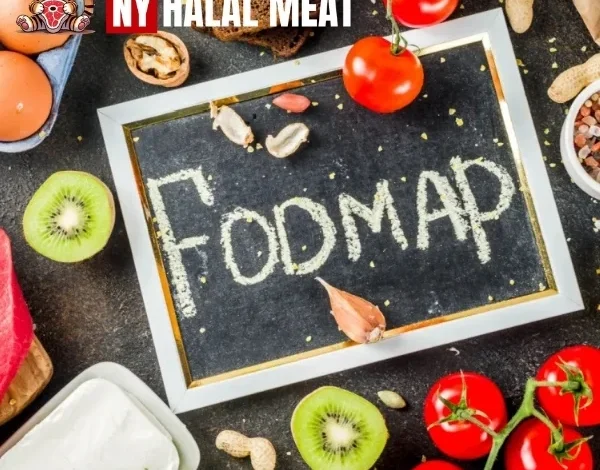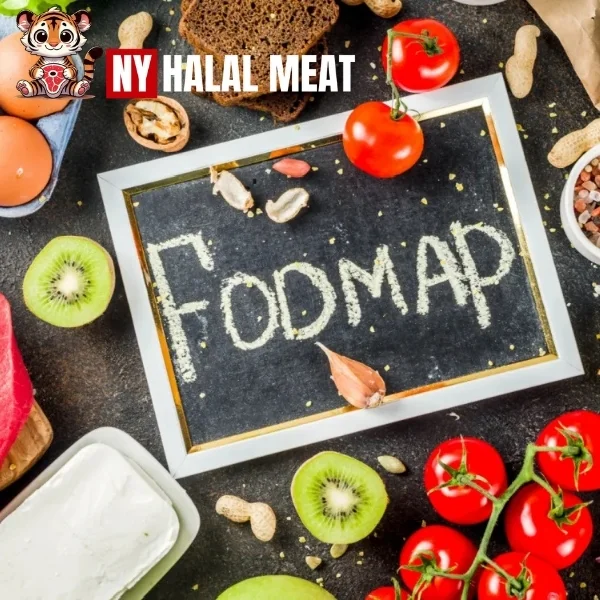
Low FODMAP Halal Foods: A Complete Guide for Digestible, Flavorful Meals
For those who follow a halal diet and also need to manage digestive issues, choosing the right foods can sometimes be tricky. A solution that might help is incorporating low FODMAP halal foods into your diet. This guide will help you understand what low FODMAP means, identify halal foods that are low in FODMAPs, and show you how to enjoy meals that are both easy on your digestive system and meet your dietary requirements.
What is a Low FODMAP Diet?
FODMAP is an acronym for Fermentable Oligosaccharides, Disaccharides, Monosaccharides, and Polyols. These are types of carbohydrates that are poorly absorbed in the small intestine. For individuals with conditions like Irritable Bowel Syndrome (IBS), consuming foods high in FODMAPs can lead to bloating, discomfort, gas, and other digestive issues.
A low FODMAP diet involves limiting the intake of foods that contain these difficult-to-digest sugars, which can provide relief from digestive discomfort. It’s important to note that following a low FODMAP diet doesn’t mean you have to give up flavor or your halal dietary restrictions. There are plenty of options for tasty and halal-friendly meals that are also gentle on your stomach.
Halal Foods That Are Low in FODMAPs
Many halal foods are naturally low in FODMAPs, so you don’t need to worry about sacrificing your culinary preferences when you follow this diet. Here are some of the most common and accessible low FODMAP halal foods:
1. Fresh Meats (Chicken, Turkey, Beef)
Unprocessed meats like chicken, turkey, and beef are naturally low in FODMAPs and are a great source of protein. These meats can be used in a variety of dishes, from grilled steaks to stews and stir-fries. Always make sure the meat is halal-certified to meet your dietary needs. Avoid processed or pre-marinated meats, as they often contain high FODMAP ingredients such as garlic and onions.
2. Seafood Options
Seafood is another excellent source of low FODMAP protein. Halal-certified fish like salmon, cod, tuna, and shrimp provide omega-3 fatty acids and are naturally free from FODMAPs. Seafood can be enjoyed grilled, baked, or sautéed with a variety of seasonings.
3. Rice and Quinoa
Grains like rice and quinoa are typically low in FODMAPs and serve as excellent side dishes or bases for main meals. White rice, brown rice, and wild rice are all safe options for those following a low FODMAP diet. Quinoa is also an excellent choice because it’s a gluten-free grain packed with fiber and protein, making it ideal for a balanced meal.
4. Low-FODMAP Vegetables
Many vegetables are low in FODMAPs and can be used to add color and nutrients to your meals. Some of the most commonly consumed low FODMAP vegetables that fit into a halal diet include:
- Carrots
- Spinach
- Zucchini
- Cucumbers
- Tomatoes
- Eggplants
On the other hand, certain vegetables are high in FODMAPs and should be avoided, such as onions, cauliflower, and asparagus.
5. Halal Fruits
While many fruits are high in FODMAPs, there are still several options that are low in FODMAPs and safe for those following a halal diet. These include:
- Bananas (unripe)
- Strawberries
- Blueberries
- Oranges
- Pineapple
Fruits can be consumed fresh or used in various dishes, smoothies, and desserts, providing natural sweetness and vitamins.
6. Lactose-Free Dairy Substitutes
Dairy products can be a source of discomfort for many people, as they often contain lactose, a high-FODMAP sugar. Fortunately, there are several lactose-free dairy substitutes available that are low in FODMAPs. Some good options include:
- Lactose-free milk or almond milk
- Rice milk
- Soy milk (ensure it is free from high FODMAP additives)
These substitutes can be used in cooking, baking, or simply added to your coffee or cereal.
Meal Ideas for a Low FODMAP Halal Diet
If you are following a low FODMAP halal diet, here are some meal ideas to get you started:
- Grilled Chicken Salad: Use grilled chicken breast or thigh, cucumbers, tomatoes, spinach, and a simple dressing made from olive oil and lemon juice.
- Salmon with Quinoa: Pair a perfectly baked salmon fillet with a side of quinoa and roasted zucchini or spinach for a delicious and satisfying meal.
- Vegetable Stir-Fry: Stir-fry zucchini, carrots, and spinach with your choice of halal-certified meat like chicken or beef for a nutritious and flavorful dish.
- Halal Meat and Rice Pilaf: Prepare a flavorful rice pilaf using white or brown rice and top it with a grilled halal meat of your choice, like beef or chicken.
Why Choose Low FODMAP Halal Foods?
Eating low FODMAP halal foods offers many benefits, especially for individuals who suffer from digestive issues such as IBS. A low FODMAP diet can help alleviate bloating, gas, and other uncomfortable symptoms, making mealtime more enjoyable. By choosing fresh, halal-certified meats, fruits, vegetables, and grains, you can enjoy a wide range of delicious, nutritious meals that are both easy on your digestive system and in line with your dietary requirements.
For those with sensitive stomachs, it’s important to understand which foods work best for you. A low FODMAP diet allows you to enjoy a variety of wholesome, halal foods while maintaining digestive comfort.
Conclusion

Adopting a low FODMAP halal diet can be a game-changer for those looking to manage digestive health without compromising on flavor or their dietary needs. By focusing on fresh, whole foods like lean meats, vegetables, and fruits, you can craft meals that are nourishing, halal, and easy on the stomach. If you’re new to this way of eating, consider consulting with a nutritionist who can help you navigate the best low FODMAP halal food options.
Whether you’re at home or dining out, there are plenty of delicious low FODMAP halal foods that will keep you feeling good, inside and out.





